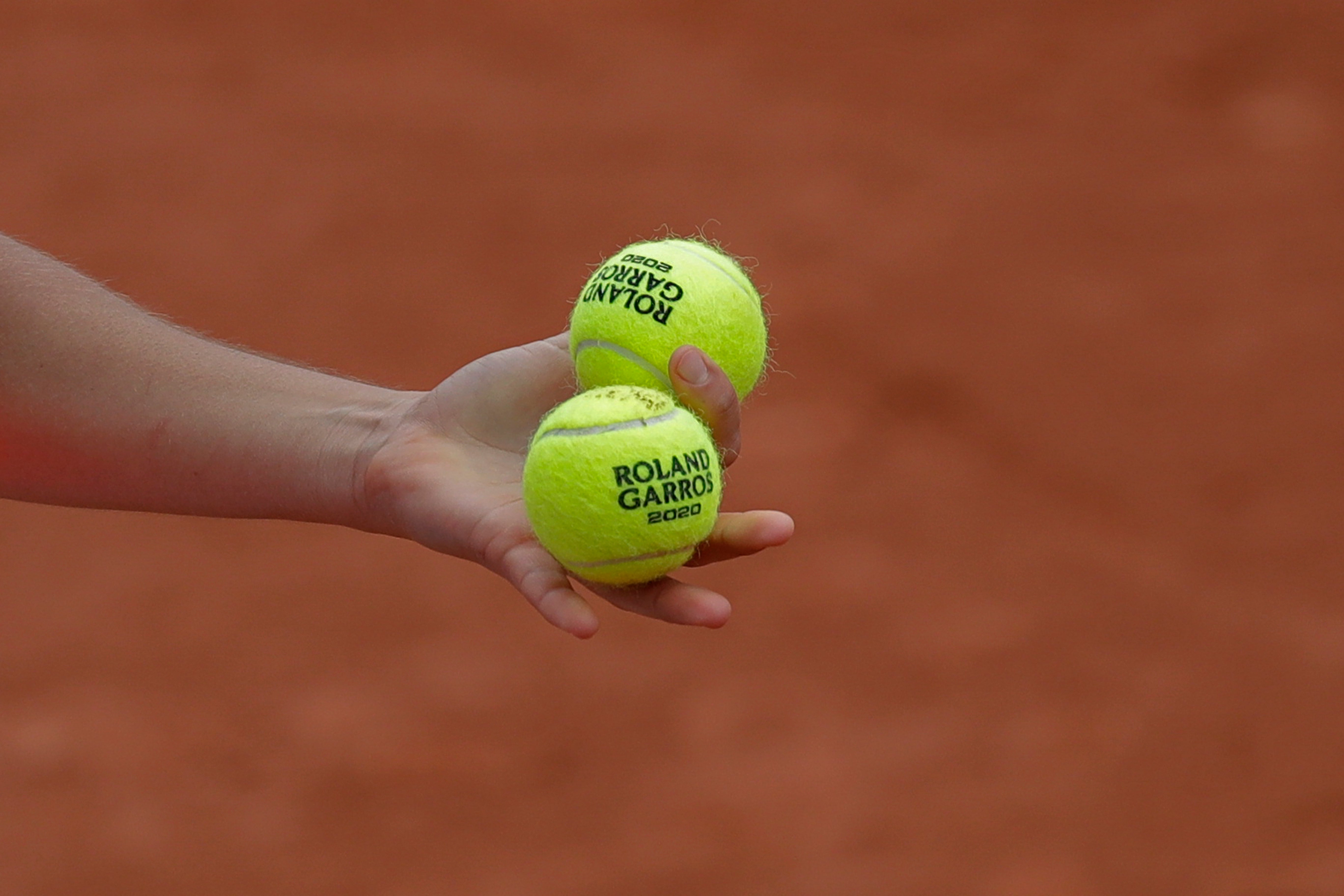Clipped wings: Virus turns tennis pros' flights into ordeals
Continuing to globe-trot and stay healthy in the era of COVID-19 has become a real headache for tennis pros

Your support helps us to tell the story
From reproductive rights to climate change to Big Tech, The Independent is on the ground when the story is developing. Whether it's investigating the financials of Elon Musk's pro-Trump PAC or producing our latest documentary, 'The A Word', which shines a light on the American women fighting for reproductive rights, we know how important it is to parse out the facts from the messaging.
At such a critical moment in US history, we need reporters on the ground. Your donation allows us to keep sending journalists to speak to both sides of the story.
The Independent is trusted by Americans across the entire political spectrum. And unlike many other quality news outlets, we choose not to lock Americans out of our reporting and analysis with paywalls. We believe quality journalism should be available to everyone, paid for by those who can afford it.
Your support makes all the difference.For the part of their job that some tennis players have always disliked — flying — Jack Sock says he toyed with what would have been a novel solution to the problem of how to stay coronavirus-free on planes: Wear a head-to-toe beekeeper's suit
The American was joking, of course. But the headache of how to globe-trot and stay healthy in the era of COVID-19 is no laughing matter for tennis pros who, unlike other business travelers, must keep flying for their paychecks to keep rolling in. Globally, air travel is down more than 85% from a year ago, according to industry figures. But tennis players cannot home-work. There are no matches on Zoom.
And so, as now-rare world travelers, they've also become unwitting first-hand witnesses of how the pandemic is battering the airline industry. With tournaments back on again, they're finding themselves rattling around eerily quiet airports that once hummed, and worrying about how well filtered the air is aboard planes Those not wealthy enough to fly private jets describe the flying experience as having been transformed into a masked ordeal of gels, social distancing and stress.
“Shocking” and “weird” is how Sock, competing in Paris at the French Open, described his recent stopover at New York's John F. Kennedy International Airport. The huge hub averaged more than 5 million passengers per month in 2019. But it saw just 636,883 passengers this July, an 89% plunge compared to the same month last year, according to the Port Authority's most recent figures.
"There wasn’t one place open inside. There were maybe 20 people in the airport," Sock said, speaking after winning his first-round match. “That was a weird sight — one of the biggest cities in the world.”
Flying and the unavoidable proximity with other passengers compounds the angst of players for whom staying virus-free has become as essential as their rackets. They must present clean bills of health at tournaments like the French Open that subject them to batteries of tests, and not only be negative but also not have been in close contact with others who are positive. In Paris, they're shielded in two hotels and ferried in disinfected vehicles to play. But outside tournament bubbles, flying in and out, limiting exposure becomes more of a challenge.
“I thought about getting a beekeeper’s suit for the plane,” Sock joked. Then, more seriously, he listed what has become his travel routine: “A little thing of hand sanitizer with me, mask at all times ... check my bags as quick as possible, have my mask on, get through security, kind of try to get in and out as quick as possible, stay away from people.
“Obviously, you’re in an enclosed space. Could be tough if someone in there is infected or something. Knock on wood, everything has been great. Tested negative 95,000 times the last few months. Hopefully, keep that streak going.”
New Yorker Kristie Ahn, ranked 102nd, said her flight to Paris wasn’t crowded, middle seats were left empty and the crew ensured passengers wore surgical masks — “you weren’t allowed to wear your own."
Still, she tried to limit any exposure by “making sure that my nose was covered and just making sure that my hands were sanitized, that I wasn’t touching my face,” and by only drinking “very quickly” when thirsty.
“It’s a bit nerve-wracking traveling just because I’m doing everything I can in my power to make sure that I am safe and I keep other people safe,” Ahn said after a first-round loss to fellow American Serena Williams.
“It’s a two-way street, so we need people to reciprocate and sometimes they don’t so it’s a bit frustrating."
Two-time Wimbledon champion Petra Kvitova avoided the stress by riding a private jet to Paris.
“That was much safer,” she said after advancing to the second round.
Zhang Shuai, also a first-round winner, said that when she was growing up in China and had never taken a plane, she longed to fly and see the world. But the novelty wore off after near-constant flying became part of her tennis job, until “I really didn't like it, especially long-haul."
She, too, says she worries about her health aboard flights but “I feel more reassured when I see that everyone is wearing a mask.”
For others, flying is simply a chore whatever the circumstances and one they didn't miss when the pandemic grounded most flights and the tennis tour.
“I completely hate flying,” said Barbara Haas, an Austrian ranked 143rd who lost in the first round. “The best thing during the lockdown was that I didn’t have to go on the plane.”
___
More AP tennis: https://apnews.com/apf-Tennis and https://twitter.com/AP_Sports